Search titles
Displaying results 1 to 9 of 9.
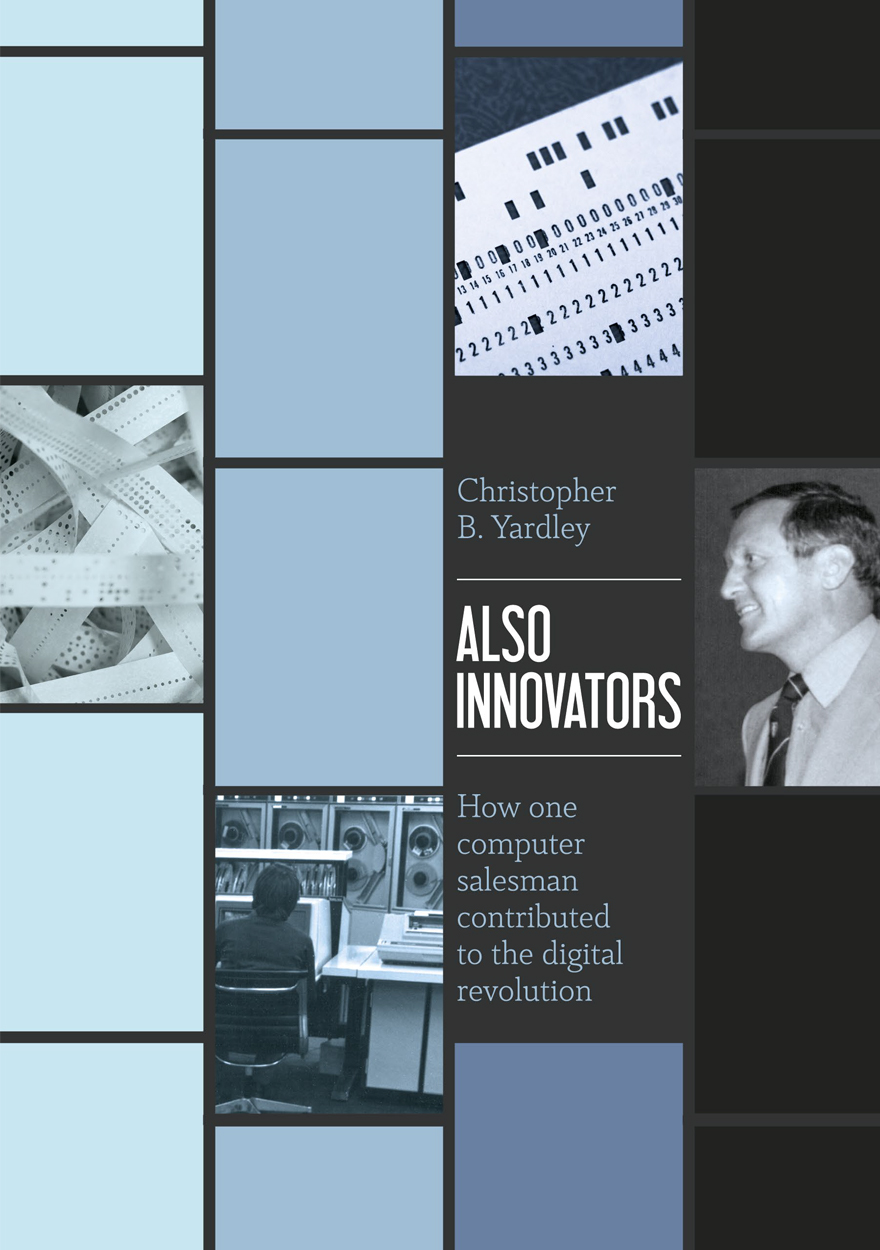
Also Innovators »
How one computer salesman contributed to the digital revolution
Authored by: Christopher B. Yardley
Publication date: April 2019
‘Thank you for your order, Mr Mainframe Customer. The cost is £5 million and the lead-time for manufacture will be two years. In the meantime you will have to build a special computer centre to our specification. For our part, our project team will help you recruit and train potential programmers and we shall advise on how you might use the system.’
How different from today when the customer will want to see a specific application running before he puts a hand in his/her pocket. Chris Yardley lived the changes as a computer salesman and tells his story of a career living and working in five countries. Warts and all. The ecstasies, the heartbreaks and idiocies of major corporations.
His career was not a planned one. In a growing industry, opportunities presented themselves and Chris believes he grasped every one presented. Having written his story, he has had every chapter verified by at least one person who features in that narrative. His respondents have universally endorsed the facts with comments such as ‘Wow, I’d forgotten most of that’. ‘You have a fantastic memory.’ ‘I never knew before the full facts of what happened.’ ‘How have you remembered all the circumstances?’ ‘It really is a people business.’
This is the only book that has followed a computer sales career over almost 50 years.
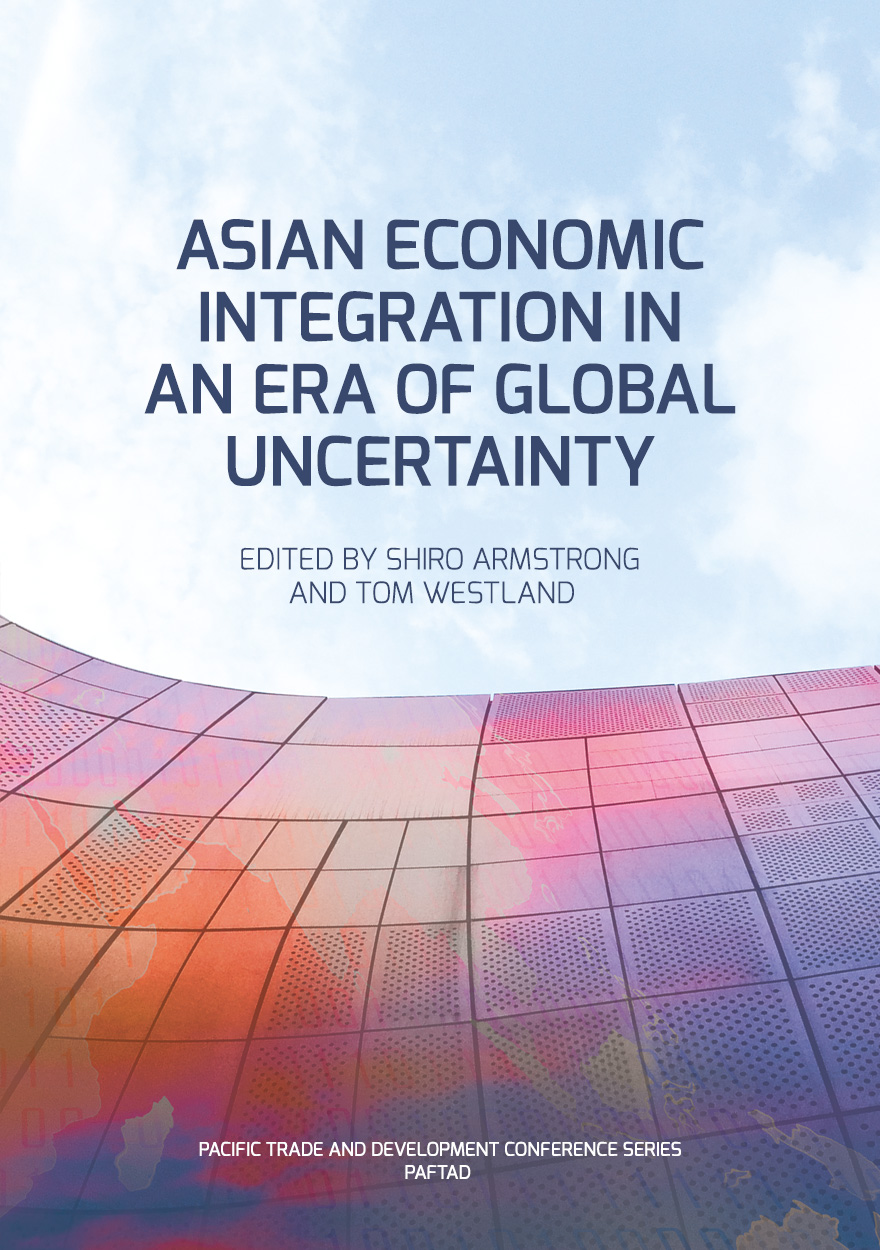
Asian Economic Integration in an Era of Global Uncertainty »
Edited by: Shiro Armstrong, Tom Westland
Publication date: January 2018
The Pacific Trade and Development (PAFTAD) conference series has been at the forefront of analysing challenges facing the economies of East Asia and the Pacific since its first meeting in Tokyo in January 1968.
The 38th PAFTAD conference met at a key time to consider international economic integration. Earlier in the year, the people of the United Kingdom voted to leave the European Union and the United States elected Donald Trump as their next president on the back of an inward-looking ‘America First’ promise. Brexit and President Trump represent a growing, and worrying, trend towards protectionism in the North Atlantic countries that have led the process of globalisation since the end of the Second World War.
The chapters in the volume describe the state of play in Asian economic integration but, more importantly, look forward to the region’s future, and the role it might play in defending the global system that has underwritten its historic rise. Asia has the potential to stand as a bulwark against the dual threats of North Atlantic protectionism and slowing trade growth, but collective leadership will be needed regionally and difficult domestic reforms will be required in each country.

Australia, the European Union and the New Trade Agenda »
Publication date: June 2017
Australia (together with New Zealand) is one of the few Organisation for Economic Co-operation and Development (OECD) countries with which the EU does not have a comprehensive trade agreement. Australia and the EU are entering a new phase in the bilateral relationship, and the push towards a potential trade agreement has been steadily gaining momentum. This collection brings together diverse and deeply practical contributions to the forthcoming policy debate on the Australia–EU Free Trade Agreement (FTA), highlighting potential points of difficulty and possible gains from the agreement. This book makes two further contributions: it adds to the body of work reappraising the contemporary Australia–EU relationship; and provides a snapshot of current issues in trade policy—the ‘new trade agenda’—which is more complex and politically visible than ever. The issues confronting Australia and the EU in forthcoming negotiations are those confronting policy makers around the globe. They are testing public tolerance of decisions once viewed as dull and technocratic, and are redefining the academic treatment of trade policy.
‘… this book is especially important because it is talking about a very different type of trade agreement than the ones Australia has concluded recently with our major trading partners in East Asia. An agreement with the EU inevitably will focus on issues like services, investment, government procurement, and competition policy. These are major issues in their own right, are key parts of the new trade agenda, and are critical to Australia’s successful transition to a prosperous post–mining boom economy. In the absence of generalisable unilateral economic reform in this country, trade policy hopefully will provide an external source of pressure for reform. If this book adds to that pressure while also suggesting some of the tools needed for reform, it will have made a major contribution.’
Dr Mike Adams, Partner, Trading Nation Consulting
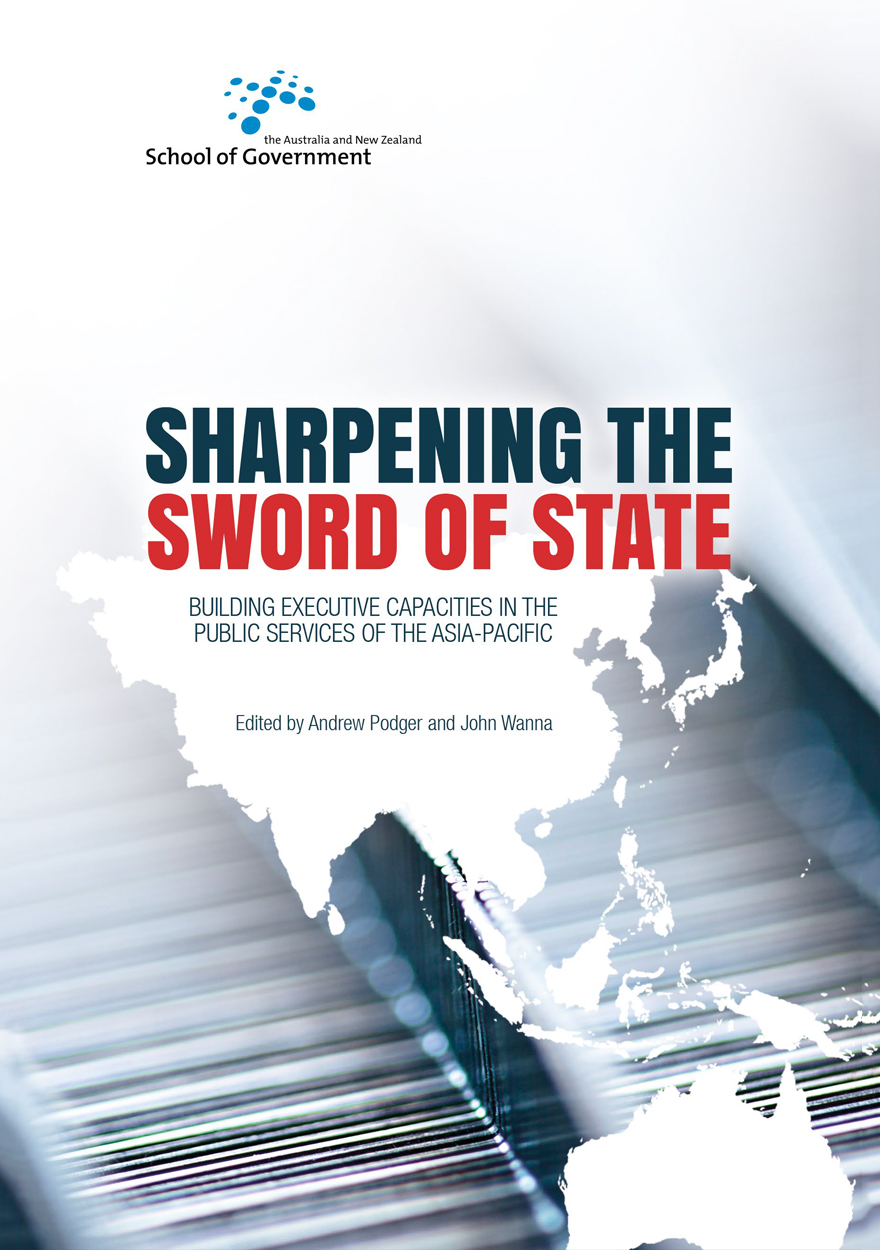
Sharpening the Sword of State »
Building executive capacities in the public services of the Asia-Pacific
Edited by: Andrew Podger, John Wanna
Publication date: November 2016
Sharpening the Sword of State explores the various ways in which 10 jurisdictions in the Asia-Pacific enhance their administrative capabilities through training and executive development. It traces how modern governments across this region look to develop their public services and public sector organisations in the face of rapid global change. For many governments there is a delicate balance between the public interest in promoting change and capacity enhancement across the public service, and the temptation to micro-manage agencies and be complacent about challenging the status quo. There is a recognition in the countries studied that training and executive development is a crucial investment in human capital but is also couched in a much wider context of public service recruitment, patterns of entry and retention, promotion, executive appointment and career development. This empirical volume, authored by academics and practitioners, is one of the first to chart these comparative differences and provide fresh perspectives to enable learning from international experiences.
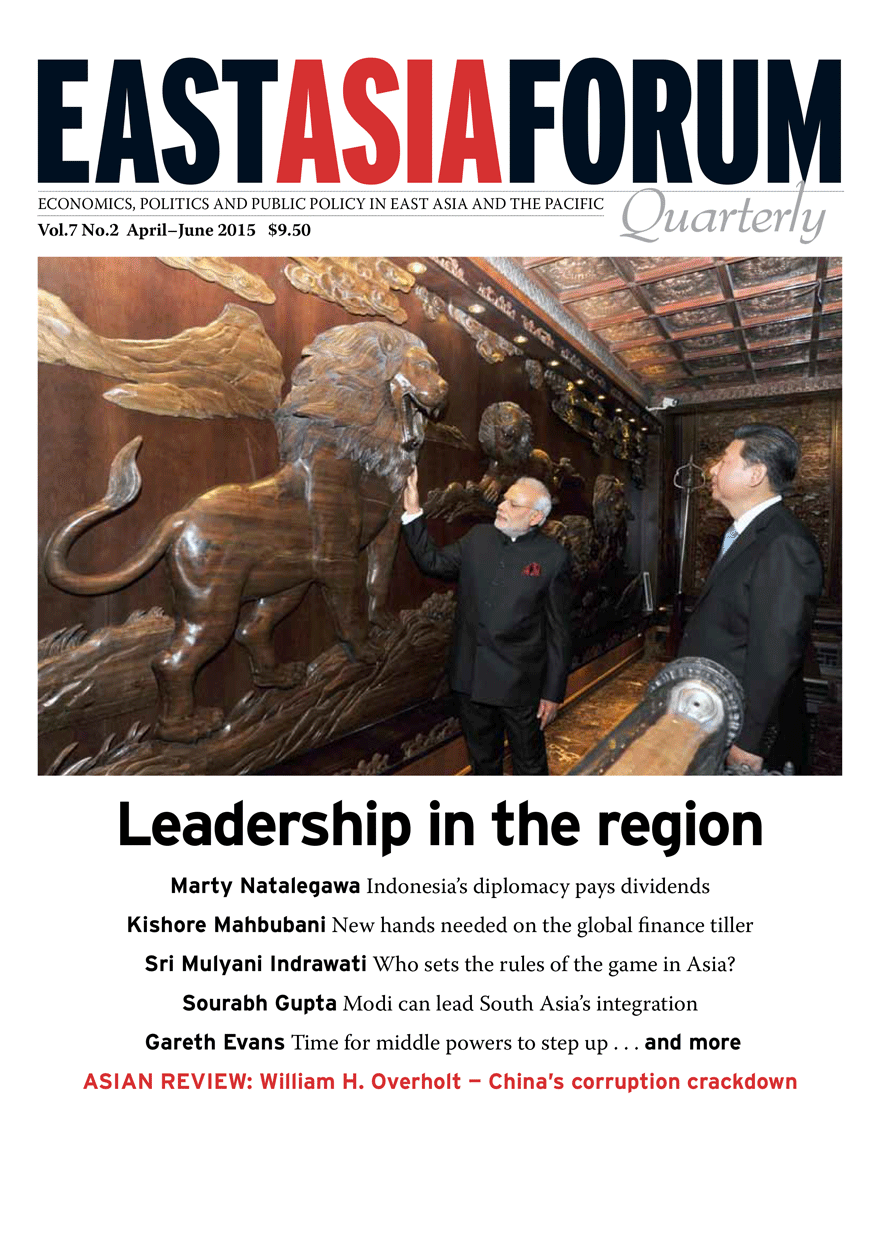
East Asia Forum Quarterly: Volume 7, Number 2, 2015 »
Publication date: June 2015
East Asia Forum Quarterly grew out of East Asia Forum (EAF) online, which has developed a reputation for providing a platform for the best in Asian analysis, research and policy comment on the Asia Pacific region in world affairs. EAFQ aims to provide a further window onto research in the leading research institutes in Asia and to provide expert comment on current developments within the region. The East Asia Forum Quarterly, like East Asia Forum online, is an initiative of the East Asia Forum (EAF) and its host organisation, the East Asian Bureau of Economic Research (EABER) in the Crawford School of Economics and Government in the College of Asia & the Pacific at The Australian National University.
Download for free
Not available for purchase

East Asia Forum Quarterly: Volume 6, Number 4, 2014 »
Publication date: November 2014
East Asia Forum Quarterly grew out of East Asia Forum (EAF) online, which has developed a reputation for providing a platform for the best in Asian analysis, research and policy comment on the Asia Pacific region in world affairs. EAFQ aims to provide a further window onto research in the leading research institutes in Asia and to provide expert comment on current developments within the region. The East Asia Forum Quarterly, like East Asia Forum online, is an initiative of the East Asia Forum (EAF) and its host organisation, the East Asian Bureau of Economic Research (EABER) in the Crawford School of Economics and Government in the College of Asia & the Pacific at The Australian National University.
Download for free
Not available for purchase
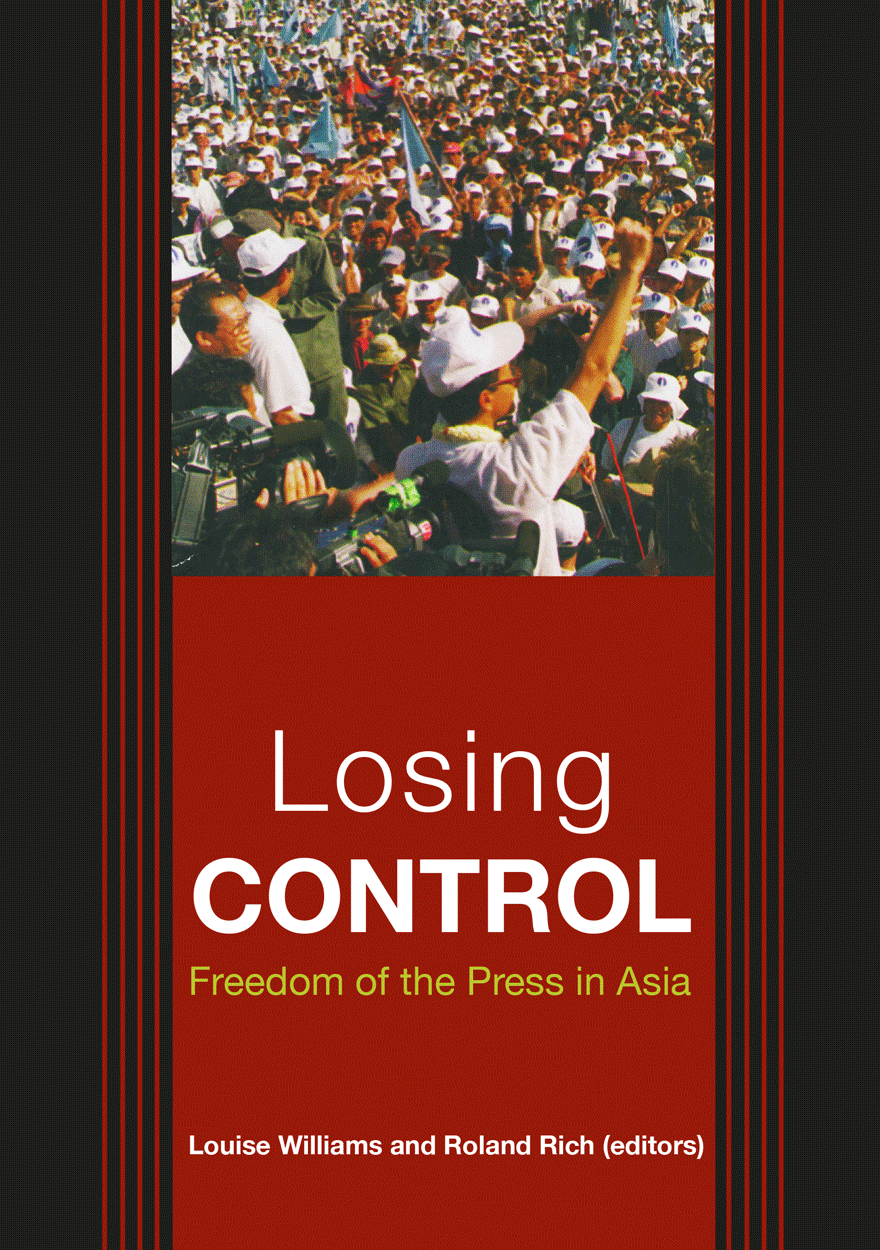
Losing Control »
Freedom of the Press in Asia
Edited by: Louise Williams, Roland Rich
Publication date: January 2014
‘A free press is not a luxury. A free press is at the absolute core of equitable development’ according to World Bank President James Wolfensohn. A free press is also the key to transparency and good governance and is an indispensable feature of a democracy. So how does Asia rate? In Losing Control, leading journalists analyse the state of play in all the countries of North Asia and Southeast Asia. From the herd journalism of Japan to the Stalinist system of North Korea, Losing Control provides an inside look at journalism and freedom of the press in each country. One conclusion—a combination of new technology and greater democracy is breaking the shackles that once constrained the press in Asia.
‘Brings together Asia’s best and brightest observers of the press.’
Hamish McDonald, Foreign Editor, The Sydney Morning Herald
‘A rare insiders’ view exposing the real dynamics behind social and political change in Asia.’
Evan Williams, Foreign Correspondent, ABC TV
‘A timely and necessary contribution to the debate over the quality of freedom in Asia.’
Geoffrey Barker, The Australian Financial Review
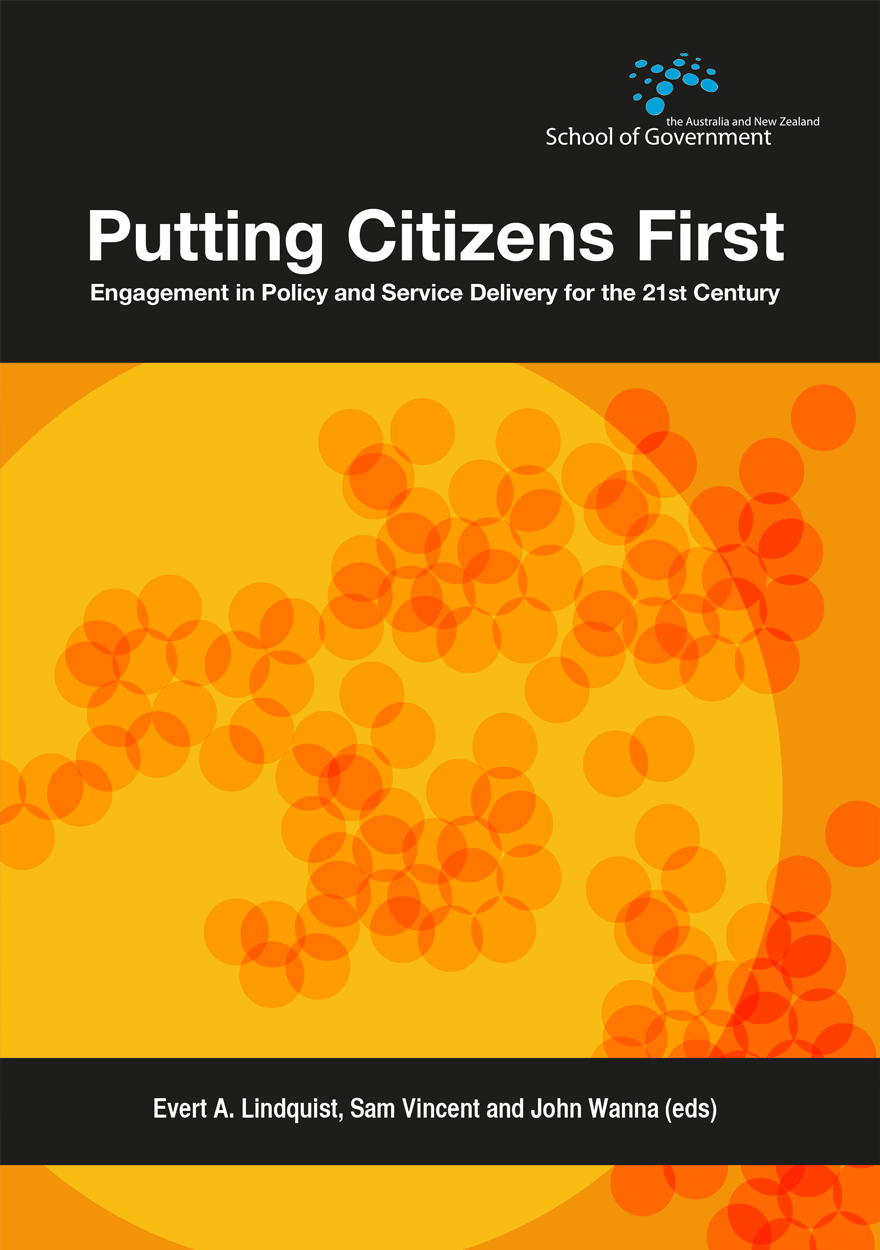
Putting Citizens First »
Engagement in Policy and Service Delivery for the 21st Century
Publication date: August 2013
This book explores the ways in which governments are putting citizens first in their policy-making endeavours. Making citizens the focus of policy interventions and involving them in the delivery and design is for many governments a normative ideal; it is a worthy objective and sounds easy to achieve. But the reality is that putting citizens at the centre of policy-making is hard and confronting. Are governments really serious in their ambitions to put citizens first? Are they prepared for the challenges and demands such an approach will demand? Are they prepared to commit the time and resources to ensure genuine engagement takes place and that citizens’ interests are considered foremost? And, more importantly, are governments prepared for the trade-offs, risks and loss of control such citizen-centric approaches will inevitably involve?
The book is divided into five parts:
setting the scene: The evolving landscape for citizen engagement
drivers for change: Innovations in citizen-centric governance
case studies in land management and Indigenous empowerment
case studies in fostering community engagement and connectedness
case studies engaging with information technology and new media.
While some chapters question how far governments can go in engaging with citizens, many point to successful examples of actual engagement that enhanced policy experiences and improved service delivery. The various authors make clear that citizen engagement is not restricted to the domain of service delivery, but if taken seriously affects the ways governments conduct their activities across all agencies. The implications are enormous, but the benefits to public policy may be enormous too.

East Asia Forum Quarterly: Volume 1, Number 1, 2009 »
Publication date: November 2009
East Asia Forum Quarterly grew out of East Asia Forum (EAF) online, which has developed a reputation for providing a platform for the best in Asian analysis, research and policy comment on the Asia Pacific region in world affairs. EAFQ aims to provide a further window onto research in the leading research institutes in Asia and to provide expert comment on current developments within the region. The East Asia Forum Quarterly, like East Asia Forum online, is an initiative of the East Asia Forum (EAF) and its host organisation, the East Asian Bureau of Economic Research (EABER) in the Crawford School of Economics and Government in the College of Asia & the Pacific at The Australian National University.
Download for free
Not available for purchase



